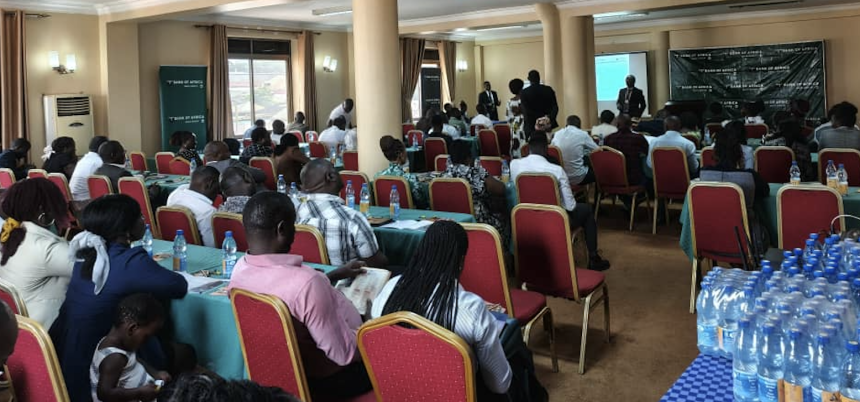In Uganda’s economic engine room, the SME sector, growth often depends not just on capital but on access to knowledge, tailored financial tools, and trusted partnerships. As the country’s entrepreneurs navigate rising costs, regulatory shifts, and market uncertainties, a new kind of engagement is beginning to emerge, one that places dialogue at the heart of development.
Across different regions of the country, a new model of business support is taking shape through business clinics. These are not typical banking events. They are immersive, on-the-ground forums where entrepreneurs meet with industry professionals, financial advisors, and sector leaders to exchange insights, voice concerns, and explore solutions designed specifically for their contexts.
One institution leading this charge is Bank of Africa Uganda, which has been holding business clinics in districts including Gulu, Masaka, Jinja, and Entebbe. But what is remarkable is not just who is hosting them, it is how they are redefining the role of banks in the entrepreneurial journey.
Rather than centering the conversation on products, these clinics are focused on partnerships. They reflect a shift in tone across the financial sector where banks are no longer gatekeepers of capital but collaborators in enterprise growth.
“I expected a product pitch,” said Oketch, a school director who attended the Gulu forum. “Instead, I got a business conversation, one that reflected my school’s actual challenges and future goals.”
This kind of feedback is becoming increasingly common, not just for Bank of Africa but for a broader movement within Uganda’s banking sector that seeks to close the gap between financial institutions and the people they serve.
From traders to contractors, educators to agribusiness owners, SMEs across Uganda are calling for banking that understands nuance, that meets them where they are, and that grows with them. Business clinics are answering that call.
Industry-wide, the response has been promising. These engagements are not only fostering better-informed clients; they are also helping financial institutions to design better products, rooted in real market intelligence rather than assumptions.
“When a contractor tells you they need financing cycles that match project disbursements, you go back and rethink your entire lending model,” shared one bank’s SME officer.
The clinics are also creating space for peer learning, where entrepreneurs learn from each other’s journeys, share success stories, and demystify access to finance. This kind of ecosystem building is critical if Uganda is to realize its full SME potential.
As Uganda continues to position itself as a hub for regional trade and innovation, initiatives like business clinics offer a glimpse of what inclusive banking can look like. It is collaborative, context-aware, and anchored in listening.
The challenge for the wider financial industry is no longer whether to engage SMEs, but how. Business clinics present a compelling answer. Not just as a tool for customer engagement, but as a blueprint for long-term and meaningful economic development.

















